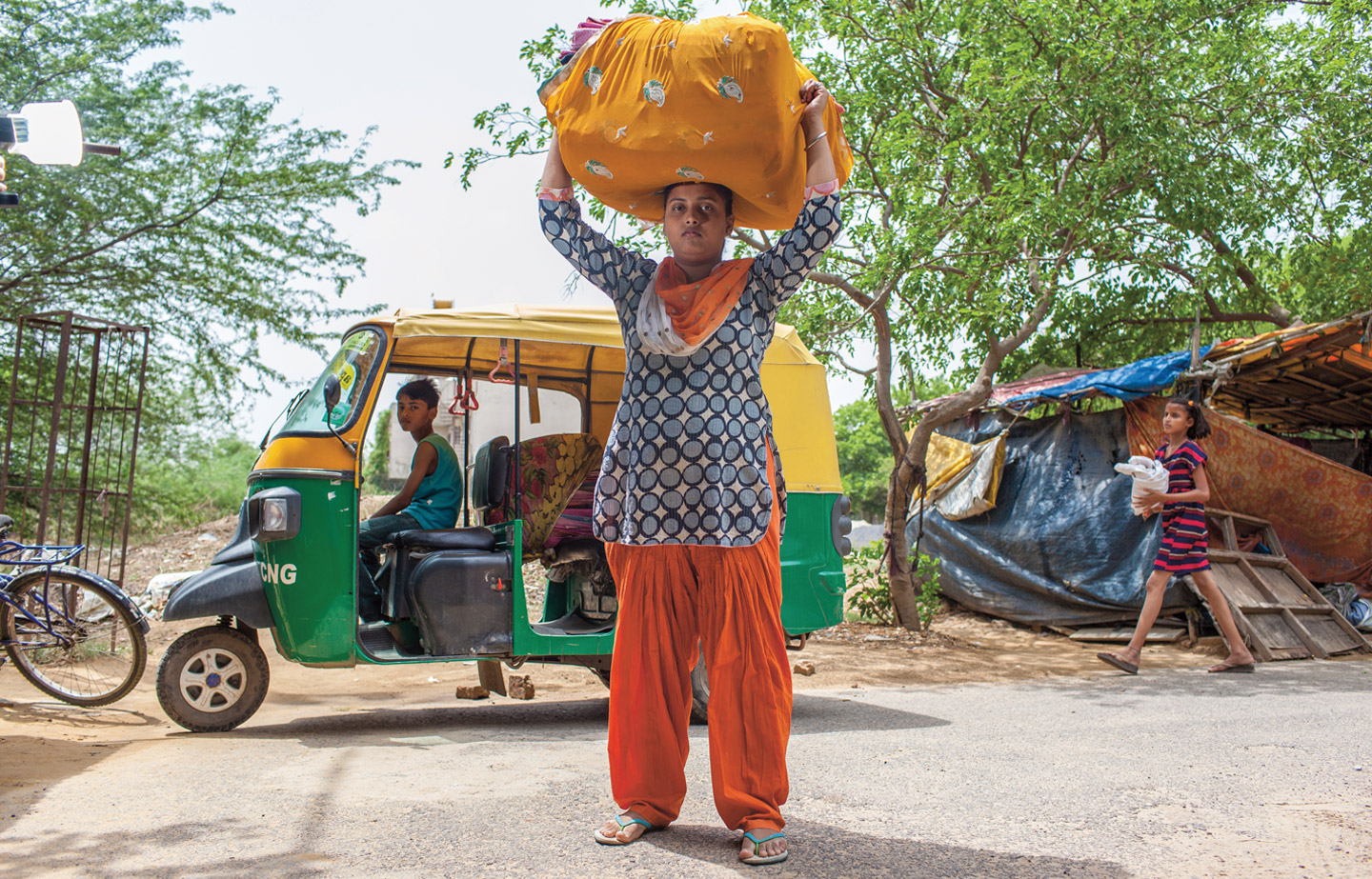Saturday night in the Indian suburb of Gurgaon. The sky turned from blue to black, the burnt-toast smell of fireworks blew across the ravine, and a tall, broad-shouldered girl named Varsha, 17, hauled a heavy iron over the shimmering clothes of others.
Quietly, quickly, she pressed the wrinkles out of a flowing brushed-pink tunic, then another the color of lime juice, followed by three button-down white shirts. Her cellphone trilled. A customer was calling, with a wedding to attend, maybe several, because it was wedding season, which explained the firecrackers. It was Varsha’s job to make sure they didn’t show up all rumpled.
Varsha* comes from a long line of dhobis—a community low on the Hindu caste** ladder whose ritual occupation for centuries had been to wash and press other people’s clothes. The last thing Varsha wanted to do was grow up to be a dhobi, or worse, a dhobi’s wife. She dreamt of going to college and then becoming a cop. She saw herself in a starched, pressed policewoman’s uniform, gold stars on her shoulders, able to protect women and girls like her from the thugs on the street. This conviction became all the more urgent after India was roiled by the violent attack on a young woman in the winter of 2012—a young woman a lot like Varsha, also a dreamer, trying to be somebody.

